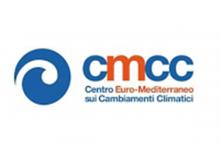
The Euro-Mediterranean Center on Climate Change Foundation (CMCC Foundation) is a non-profit research institution. CMCC’s mission is to investigate and model our climate system and its interactions with the environment and the society to provide rigorous, and timely scientific results in support to sustainable development and science driven adaptation and mitigation policies in a changing climate. Within CMCC, experienced scientists, economists, and technicians, work together to provide multidisciplinary analyses of climate impacts on various systems such as agriculture, ecosystems, coasts, water resources, and economics. CMCC also supports policymakers in setting and assessing costs, mitigation, and adaptation policies.
CMCC benefits from the extensive applied research experience of its members and institutional partners: Istituto Nazionale di Geofisica e Vulcanologia (INGV); Centro Italiano di Ricerche Aerospaziali (CIRA S.c.p.a.); Politecnico di Milano (PoliMi); Università Ca’ Foscari Venezia; Università del Salento; Università di Sassari; Università della Tuscia.
CMCC acquired portfolio of research projects includes 225 funded projects: 37 in FP6 and FP7, 33 in H2020 and 155 funded projects under other EU and international research grants. In about a half of the implemented projects, CMCC was the project coordinator.
CMCC Foundation is also member of the European Network for Earth System Modelling (ENES), partner of the NEMO Consortium, contributing to its System Team, and the Earth System Grid Federation (ESGF), providing access to 100TB CMIP5 data through its data node deployed at the CMCC Supercomputing Center.
During 2016, the number of people who worked at CMCC is equal to 94 employees. People carrying out scientific and technical activities prevail (83%), while 17% of the staff performs administrative roles and carries out communication activities. The research activities are distributed among eight research divisions that share different knowledge and skills in the field of climate science: Advanced Scientific Computing (ASC) Division; Climate Simulation and Prediction (CSP) Division; Economic analysis of Climate Impacts and Policy (ECIP) Division; Impacts on Agriculture, Forests and Ecosystem Services (IAFES) Division; Ocean modeling and Data Assimilation (ODA) Division; Ocean Predictions and Applications (OPA) Division; Risk Assessment and Adaptation Strategies (RAAS) Division; Regional Models and geo-Hydrological Impacts (REHMI) Division.
The Advanced Scientific Computing (ASC) Division of CMCC Foundation carries out Research & Development activities on Computational Sciences applied to Climate Change, focusing on the optimization of numerical models on HPC architectures and the management of large volumes of scientific data looking forward at exascale scenarios. In particular, a research unit of ASC Division works on: (I) the optimization and the parallelization of the numerical models for climate change simulations (both climate and impacts models); (II) the evaluation of how new emergent technologies impact on the implementation and the design of the current climate models; (III) the innovation of the main computational kernels by means of a re-design at algorithmic and software level.
The Ocean Modelling and Data Assimilation (ODA) Division of CMCC Foundation focuses on the development and improvement of the CMCC Earth System Model components with a particular emphasis on the ocean physical and biogeochemical models. In the last year, the ODA Division has tackled the challenge of simulating the high-resolution ocean dynamics at global scales, developing an eddying ocean/sea ice system, currently the highest resolution implemented in a global NEMO ocean-model domain.
Fondazione Centro Euro-Mediterraneo sui Cambiamenti Climitici will contribute to the following activities:
WP1: Algorithms and Mathematics:
- Extraction and providing NEMO dwarf
WP2: Programming Models & Domain-specific Languages:
- Providing requirements for high-level domain specific language specification and demonstrating the application of the domain specific language toolchain to NEMO dwarf
WP3: Weather & Climate Benchmarks:
- Implementation of a NEMO reference global configuration at eddying resolution for the HPCW v0-benchmarks, integration, validation and benchmark of the novel DSL NEMO dwarf in the tier-1 benchmark suite
